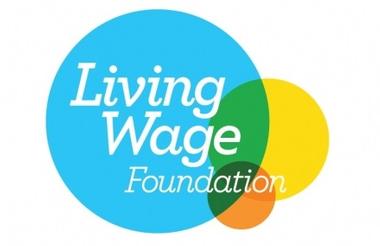Many charities that pay their employees the UK and London real living wages have said they will continue to do so, as the rates for 2023-24 increased by 10%.
Yesterday, the Living Wage Foundation announced that the real living wage rates, which are calculated by the Resolution Foundation and based on what over-18s need to live, rose to £12 across the UK and £13.15 in London.
In comparison, the minimum and national living wages – the statutory rates those aged 21 to 22 and those aged 23 and over should earn across the UK – currently stand at £10.18 and £10.42, respectively.
According to the Living Wage Foundation website, there are now 14,054 real living wage employers, including 2,408 charities ranging from Oxfam UK to NHS Charities Together and New Philanthropy Capital.
Charities including Blood Cancer UK, Citizens UK, the Joseph Rowntree Foundation and Oxfam GB told Civil Society that they will remain real living wage employers.
Accredited employers have until 1 May 2024 to implement the new rates.
Record employers signing up to the movement
The new real living wage rates are worth £3,081 more per year in the UK than the minimum wage and £5,324 more in the capital, and are set to benefit over 460,000 workers.
The Living Wage Foundation said that the past two years have seen “record numbers” of employers becoming accredited.
In addition, there are now 116 living hours employers, including 13 charities such as Citizens UK and SCVO, “going beyond payment of the real living wage to also provide a guaranteed minimum of 16 hours work a week, a month’s notice of shift patterns and a contract that reflects hours worked”.
Staff must have wage security and stability
Matthew Bolton, executive director of Citizens UK, said that his charity will continue to pay staff the real living wage.
“As the home and heart of the campaign for a living wage and the Living Wage Foundation, we think it’s important to provide everyone at Citizens UK with the security and stability of a wage that meets their everyday needs,” he said.
“We’re also living hours and living pensions accredited and encourage other charities to do the same.”
Nils Wieboldt, director of finance at Blood Cancer UK, said: “As an organisation dedicated to beating blood cancer within the next generation, our staff all receive at least the real living wage, and we remain committed to being a real living wage employer.
“A real living wage is only one of the elements in a wider range of benefits that start at day one at Blood Cancer UK that focus on wellbeing, culture, and professional and personal development.”
All charities operate in a ‘challenging environment’
Anna Hart, director of people and culture at Scottish SPCA, said: “We’re proud to be a real living wage employer and we’re committed to remaining one.
“Like all charities, we’re operating in a challenging environment where the cost-of-living crisis is impacting our fundraising income generated to support the delivery of our services.
“The flipside of this is that our own costs are rising as demand for our services grows. We see paying a real living wage as an investment in our colleagues, who do incredible work every single day to provide lifeline services to animals and people in every community in Scotland.”











